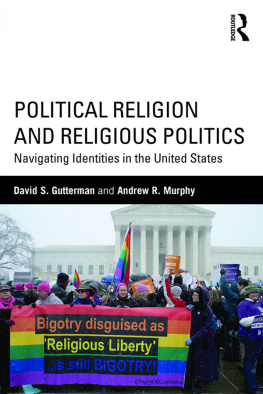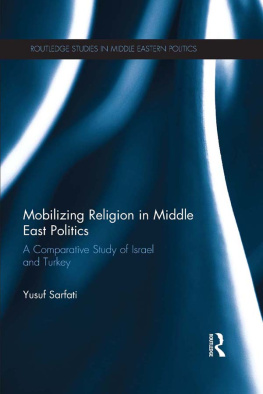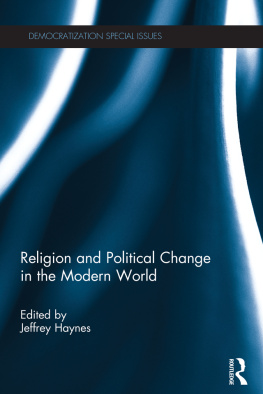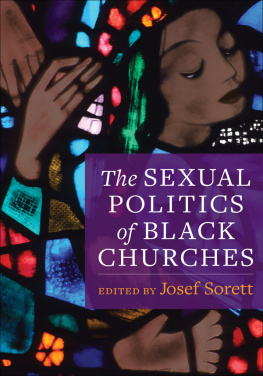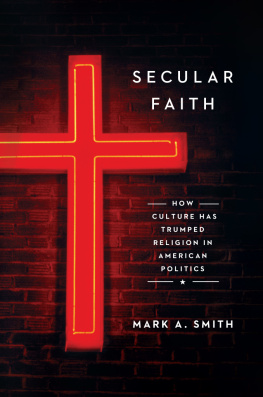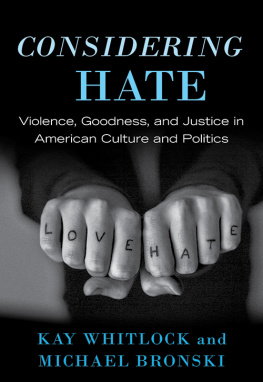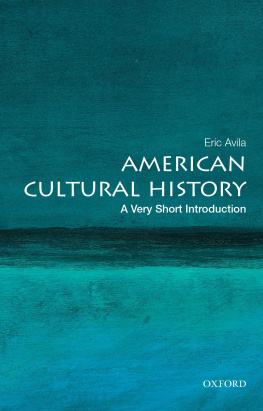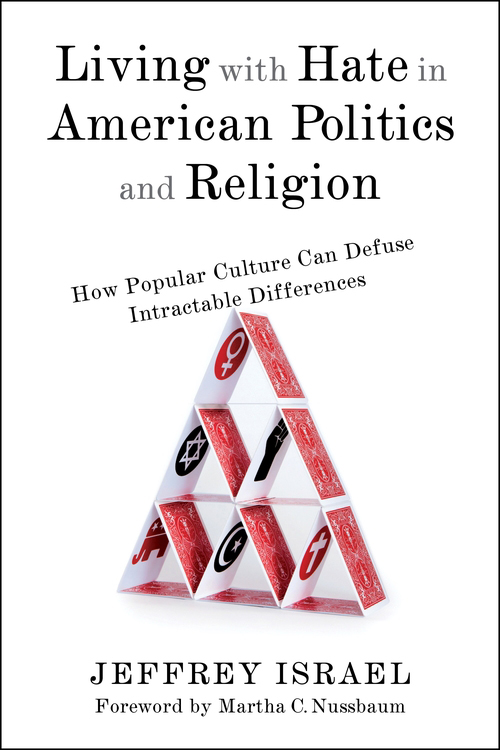LIVING WITH HATE IN AMERICAN POLITICS AND RELIGION
LIVING WITH HATE IN AMERICAN POLITICS AND RELIGION
HOW POPULAR CULTURE CAN DEFUSE INTRACTABLE DIFFERENCES

JEFFREY ISRAEL
Columbia University Press
New York

Columbia University Press
Publishers Since 1893
New York Chichester, West Sussex
cup.columbia.edu
Copyright 2019 Columbia University Press
All rights reserved
E-ISBN 978-0-231-54875-5
Library of Congress Cataloging-in-Publication Data
Names: Israel, Jeffrey, author.
Title: Living with hate in American politics and religion : how popular culture can defuse intractable differences / Jeffrey Israel.
Description: New York : Columbia University Press, 2019. | Includes bibliographical references and index.
Identifiers: LCCN 2018040882 | ISBN 9780231190169 (cloth : alk. paper)
Subjects: LCSH: Religion and politicsUnited States. | Popular cultureUnited States. | EmotionsPolitical aspects. | Political psychology. | Political sciencePhilosophy.
Classification: LCC BL65.P7 I87 2019 | DDC 201/.720973dc23
LC record available at https://lccn.loc.gov/2018040882
A Columbia University Press E-book.
CUP would be pleased to hear about your reading experience with this e-book at .
Cover design: Julia Kushnirsky
FOR MORRIS AND SOLOMON

How could he leave? How could he go? Everything he hated was here.
Philip Roth, Sabbaths Theater
CONTENTS
MARTHA C. NUSSBAUM
J eff generously invited me to play a speaking role in his brilliant book about comedy, a book in which his own comic sensibility and his own personal reactions as a Jewish man are a constant presence. An honor, surely, but also a problem: what role can I play? Unfortunately, there is no such role as the ex-shiksa, not really. Being a shiksa is a fate as inexorable as taxes. So even now, on this fiftieth anniversary year of my conversion to Judaism, I am doomed to occupy some shiksa role. I definitely do not want to be one of Philip Roths shiksas, mere objects of anxious male narcissistic objectification. So let me assume the role of Margaret Dumont, that snooty WASP foil of the Marx brothers, who sneakily collaborates in their joking and whose frosty above-it-allness gets taken down to earth in so many delightful ways, definitely with her own connivance. This from Duck Soup :
Groucho: I suppose youll think me a sentimental old fluff, but would you mind giving me a lock of your hair?
Dumont: A lock of my hair? Why, I had no idea you
Groucho: Im letting you off easy. I was gonna ask for the whole wig.
This exchange, both a little rough and totally delightful, illustrates a central thesis of Jeffs book: that people, especially people in societys dominant groups, love to define themselves as above the flawed physicality of the merely human (here aging, thinning hair)and these people improve, while greatly enjoying themselves, when someone refuses to let them stay on those Olympian heightswhen that other sees them, and makes them see themselves, as flawed and embodied. Dumonts initial response is lofty sentimentality: she clearly sees herself as a fine lady before whom a smitten knight has just made a declaration. But Groucho refuses to go there: instead he teases her by seeing through her pretensions. She actually wears a wig, and he knows it. The pleasure for her is being seen with all her imperfections; the pleasure for the audience is seeing pomposity taken down a peg, but then, also, being reminded that we are all wearers of wigs, people who cover our imperfections and yet at the same time long to be seen as we are. (For Jewish audience members, another dimension to the joke is the suggestion that Mrs. Teasdale is really Jewish and her wig is a sheitel , surely an identity that the fictional Mrs. Teasdale would cover yet more anxiously than she covers baldness.) Yet another level to the joke involves recognizing that the two actors have cleverly connived at this moment. Dumonts characters are certainly not treated well in the plots of the movies; but Groucho always publicly acknowledged Dumont as a valuable collaborator in play, and she remained devoted to Julie (as she preferred to call him) throughout her career. So the audience also knows that Dumont the comic actress is playing along with the game and reveling in her characters earthy takedown. Im happy to assume that role for the rest of this foreword, saying some serious things that will no doubt end up in the soup.
Where exactly does Jewishness enter the picture in this exchange? As Jeff points out with impressive historical analysis, Jewish humor, especially American Jewish humor, is obsessed with the body, and the recovery of the body as the self, in a puritanical WASP culture obsessed with rising above the bodily and determined to stigmatize the Jew as dirty. This WASP culture is not just missing a lot of fun, it is also lacking resources to confront social divisions, since a powerful way in which polarized people can come together is on the terrain of common bodily humanity. So American Protestant culture needs, perhaps more than many, the delightful comic takedown exemplified in Grouchos remark as well as by so many cases in this extremely funny book.
The connection of the helpful and delightful takedown to Jewish identity is contingent (Aristophanes did some similar things in ancient Greece), but it is helpful to think with. And it suggests valuable insights not only for the personal life but also for the political life.
The general thesis of this book is that American Jewish humor and its analogues (but really, in America more or less all humor is Jewish humor) contribute to the stability and success of American political life by helping our society negotiate and defang (at least to some extent) hostile emotions that, unaddressed, threaten to derail it. In general, Jeff argues, liberal societies with high ideals (here Jeff kindly turns to my version of the Capabilities Approach, though not without insightful discussion of Rawls) are always threatened by remaindersby fears and hatreds that lurk beneath their civilized surface. If we dont confront them, they fester and threaten the success of the liberal project. But if we simply vent them, the violence of our emotions threatens that project directly.
What to do? We should not, Jeff argues, confront these remainders through politically imposed censorship: then the liberal project would undercut itself. And indeed, he believes, there is not much that law and politics can do directly to affect the problem of lurking negative emotions. But there is a way to address them in what Rawls called the background culturethe informal nonpolitical set of interactions that have large effects on the formal political parts of our lives. This way is to explore the ugly sentiments at one remove, by framing them as play. Seen under the quotation marks of play, particularly when gifted comic writers or actors render the exchange delightful, the ugly sentiments are, to an extent, transformed, defanged, and perhaps, as in Lenny Bruces greatest routines, just trail off into sheer nonsense. Here, again kindly, Jeff refers to the role of play on my capabilities list, but he is really doing something totally original and different. My capability of Play was meant to signal a duty on the part of government to provide spaces for recreation, leisure, and self-cultivation. Jeff agrees with that, and he does offer an insightful discussion of public cultural activity; but in the main he is not talking about government action and he frames his whole exercise as one that must surge up from the background culturethough preferably without government interference of the sort that dogged Bruces footsteps.


